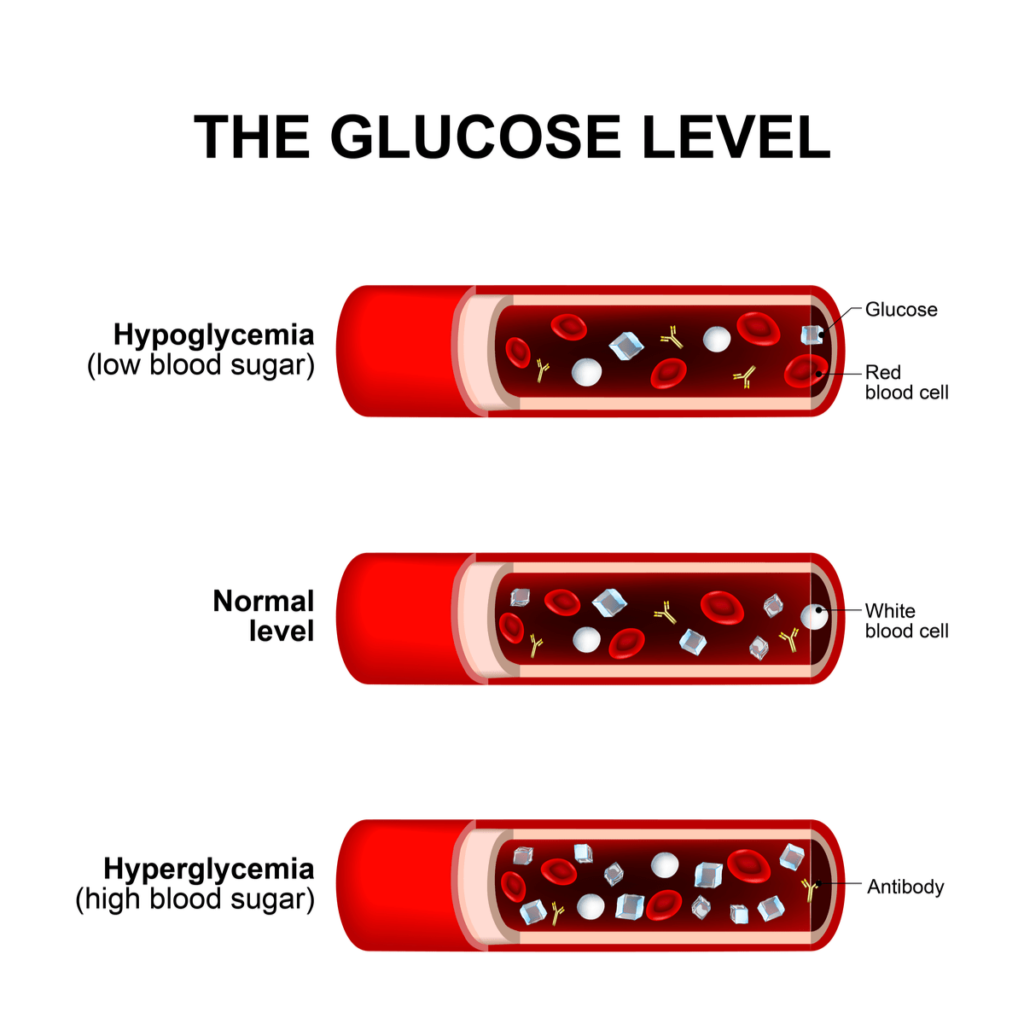High Blood Sugar (Hyperglycemia) in Diabetes: Causes, Symptoms, and Management
Share IT

Launch Your Dream Website with Us!
Click Here to Get in touch with Us.
Categories
High Blood Sugar in Diabetes
The Blood Sugar Tightrope: An Understanding of Diabetes Hyperglycemia
Keeping blood sugar levels within normal ranges is essential for managing diabetes. Hyperglycemia, or high blood sugar, is just as dangerous as hypoglycemia, or low blood sugar, which receives more attention. Let’s examine the realm of hyperglycemia in diabetes, including its causes, signs, possible complications, and practical self-care techniques.
Thank you for reading this post, don't forget to subscribe!Table of Contents

What Causes High Blood Sugar Swings: Hyperglycemia?
High Blood Sugar in Diabetes
When there is an excessive amount of glucose (sugar) in the bloodstream, the condition is referred to as hyperglycemia, or high blood sugar. Diabetes is characterised by insufficient insulin production or ineffective insulin usage by the body. Insulin is a hormone that aids in the absorption of glucose by cells.
Causes of high blood sugar:
High Blood Sugar in Diabetes
A number of variables can cause hyperglycemia in people with diabetes:
- Missed or Delayed medicine: If insulin or diabetic medicine is skipped or delayed, blood sugar levels may rise.
- Dietary Decisions: Eating refined carbs, sugar-filled beverages, or large quantities of food might overburden the body’s capacity to control blood sugar levels.
- Absence of Exercise: The body uses glucose for energy while it is physically active, and idleness can lead to hyperglycemia.
- Illness or Stress: Stress, illnesses, and infections can all cause hormonal shifts that cause blood sugar levels to rise.
Identifying the Indices: Indications of High Blood Sugar
High Blood Sugar in Diabetes
Not all cases of hyperglycemia result in overt symptoms. However, early detection and response depend on being aware of the potential warning signs:
- Increased thirst and urination: The body tries to get rid of extra sugar in the urine, which makes you thirstier and urinate more frequently.
- Overindulgence in hunger: Even after eating, hunger pains may persist because cells cannot access glucose for energy.
- Lethargy and fatigue: Hyperglycemia can deplete your energy and make you feel lethargic and exhausted.
- Vision impairment: Elevated blood sugar levels can impact the lenses in your eyes, leading to impaired vision.
- Wounds that take a long time to heal: Hyperglycemia can delay wound healing and raise the risk of infection.
- To avoid consequences: hyperglycemia must be diagnosed and treated as soon as possible.
The Extended Repercussions: Possible Adverse Effects of Hyperglycemia
High Blood Sugar in Diabetes
If chronically elevated blood sugar is not controlled, it can result in a number of problems. Among them are:
- Diabetic neuropathy: Damage to the nerves that results in pain, tingling, numbness, and weakness throughout the body.
- Diabetic retinopathy: Damage to the blood vessels of the retina, the layer of the eye that is sensitive to light; may result in loss of vision.
- renal damage from diabetic nephropathy may result in renal failure.
- Cardiovascular complications: elevated risk of peripheral artery disease (PAD), heart disease, and stroke.
Taking Charge: Controlling Blood Sugar Levels in Diabetes
High Blood Sugar in Diabetes
Thankfully, there are a few actions you may do to control hyperglycemia and maintain a healthy blood sugar range:
- Medication Adherence: Take your diabetic or insulin prescriptions as directed by your physician.
- Healthy Eating: Make sure your diet is well-balanced and rich in fruits, vegetables, whole grains, and lean proteins. Refined carbs and sugary drinks should be avoided.
- Frequent Exercise: To support good blood sugar regulation, partake in regular physical activity.
- Blood Sugar Monitoring: Keep a regular eye on your blood sugar levels to spot patterns and make any necessary adjustments to your management strategy.
- Stress Management: Since stress can impact blood sugar levels, learn good coping mechanisms.
- Frequent Visits with the Doctor: Make time for routine visits with your physician to go over blood sugar control and, if needed, modify your treatment plan.
High Blood Sugar in Diabetes
By putting these tactics into practice and collaborating closely with your medical team, you can effectively control your blood sugar levels and reduce your chance of developing problems from diabetes.
Managing Diabetes and Leading a Balanced Life: Being Hyperglycemic Doesn’t Have to Limit You
High Blood Sugar in Diabetes
Although hyperglycemia can be difficult, you can live a happy and active life if you have the right information, practise regular self-management, and have the support of your medical team. Recall that strength comes from knowledge. You may confidently walk the tightrope of blood sugar regulation if you understand hyperglycemia and take charge of your diabetes treatment.

Launch Your Dream Website with Us!
Click Here to Get in touch with Us.





























































Recent Comments